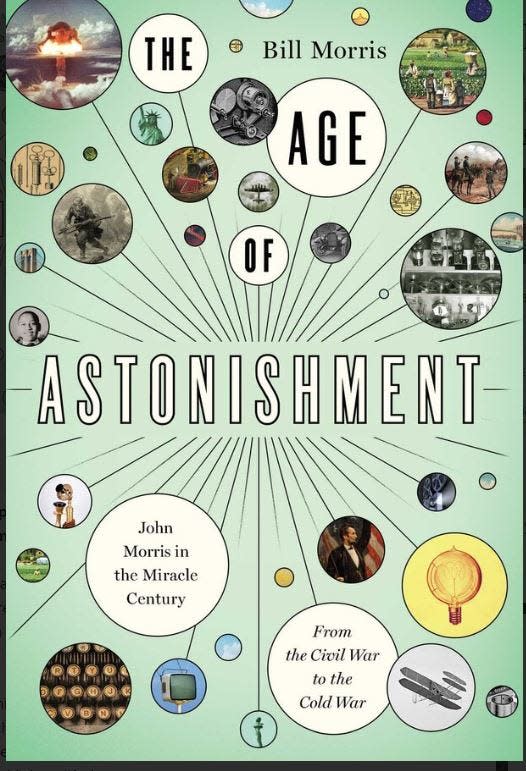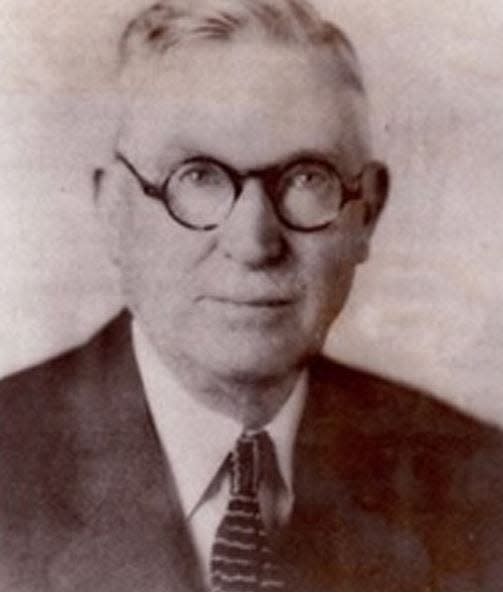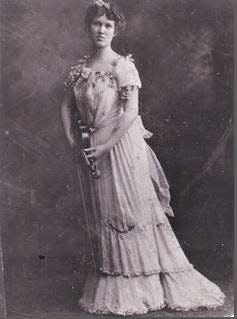Author connects to grandfather in book full of Athens and UGA history, personalities

John Morris was a professor at the University of Georgia for five decades until he retired in 1944, but for the educator’s grandson, he was a mysterious kinsman with facets of his life hidden in old narratives in attic boxes, library files and memories scribed in old letters.
About five years ago, the grandson — New York City author and essayist Bill Morris — decided to delve into the life of his grandfather, who today is virtually forgotten on the campus and in the city that was his home.
The grandson said he has no memory of his grandfather, but there was a photograph from 1952 of the almost 90-year-old John Morris holding the infant, Bill, on his knee. A physical meeting of the two had happened.
“We were alive at the same time. And he was born during the Civil War,” Morris said in a recent phone interview.
Read More: Oconee County filmmaker releases short film dealing with mental health. Here's how to watch
Also: Winterville's new art gallery is so tiny you'd have to be 2-inches-tall to get inside
In case you missed it: Independent Press recognizes books by Athens mystery writer Betty Jean Craige
After several years of research, he not only built a historical view of John Morris, but he laced the Morris story with events and people from those years in Athens. The personalities included the likes of UGA football legend Vernon “Catfish” Smith to tennis legend Dan Magill.

They had roamed the same Athens neighborhood where the Morris family lived on Mell Street near Five Points.
This year, New York publisher Pegasus Books released “The Age of Astonishment: John Morris in the Miracle Century – From the Civil War to the Cold War,” a 365-page book focusing on the grandfather’s life in a time of industrial and cultural revolution.
Bill Morris has authored two novels, and while he is a writer for “The Millions,” a literary magazine, he has written for several publications including the New York Times and Popular Mechanics.
John Morris had lived from a time of no motorized cars to a day when air travel became mainstream reality — a 90-year period of mankind’s history that fits the book’s title as an “age of astonishment.”
“Even as a teenager, I thought about what he went through, from horses to jets, from single-fire rifles to the atom bomb — radio, television, flush toilets, penicillin,” the grandson pondered.
John Morris was a son of UGA professor Charles Morris, who in the 1800s taught belles lettres (which involves essays on artistic and literary criticism), rhetoric and English. His siblings include Jim, who became a missionary to Brazil; Charles, an accountant; and two sisters, Susie and Louise. Another brother, Sylvanus, became the first dean of the UGA Law School.
The Law School has a memorial page to Sylvanus Morris, describing him as honest and fearless, and proclaiming “he knew the common law of England just as he knew his Bible.”

The book shows that John Morris married Gretchen Gallagher from Upstate New York. She taught violin and piano at the Lucy Cobb Institute in Athens.
The Morris couple built their yellow stucco home on Mell Street and commissioned local architect Fred J. Orr to design the house, which still exists to this day. Orr is one of the more historical architects in Athens, having designed numerous homes in Athens and elsewhere.
The couple raised five children: Margarethe, who married Athens insurance businessman Charlie Parrott, along with Charles, Sarah, Jack and Richard, the latter who is the father of the book’s author.
Richard Morris was the youngest of the children, having been born when his father was almost 60, Bill Morris said.

“My father grew up there and Catfish Smith lived next door and (history professor) R.P. Brooks, a sort of legendary guy around campus, lived on other side of him,” Bill Morris said. Richard Morris graduated from Athens High School in 1938 and co-edited the high school newspaper “Thumbtack Tribune.”
Bill Morris had retained a letter his father wrote to him describing a trip to Atlanta where he met with Lou McGarity of Athens, who would later become an acclaimed trombone player in New York City. Bill said that 30 years after that visit, when he was 10, he made a trip with his father to New York. He recalled they were in a nightclub when McGarity, playing in the bandstand, came over to their table to speak with his father.
“My mind was blown away that my Dad knew this guy,” he said.
Bill Morris’ father was also close friends with UGA tennis icon Magill, the book describing them going to games at Sanford Stadium.
Bill Morris said his grandfather had a reserved personality and the study of languages suited him because he could “lose himself in a self-contained obscure world. He could wall himself away from all the craziness of a large world.”

His grandfather had once compiled a German dictionary, which the grandson said he thought was lost until a cousin, John Morris, who played professional football for the Boston Patriots, said he had the manuscript.
“That was another goldmine for the book that I stumbled onto while I was working on the book. I thought the dictionary was gone,” Bill Morris said.
“Getting the dictionary was an eye-opener. The dictionary was not a great work of scholarship,” Morris said.
“John was really just cataloguing stuff. It wasn’t an inspired work of scholarship. That was disappointing, yet at the same time I ended up coming to terms with the disappointment because he had done so much amazing stuff in his life,” he said.
“He had the conviction to live life the way he wanted. I wound up feeling tremendous respect for that,” said the writer now spiritually connected to a grandfather captured in an old picture.
This article originally appeared on Athens Banner-Herald: Author writes book about the life of his grandfather, a UGA professor

 money
money 